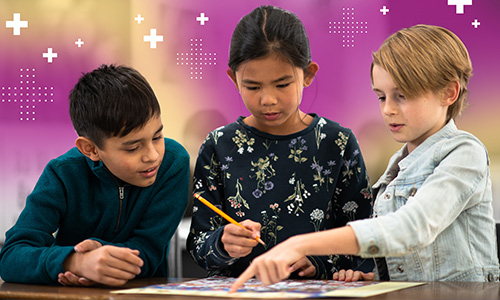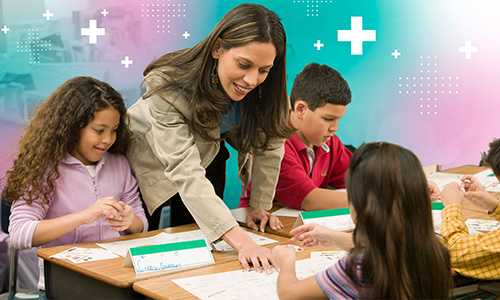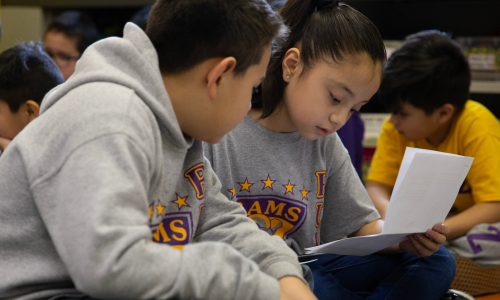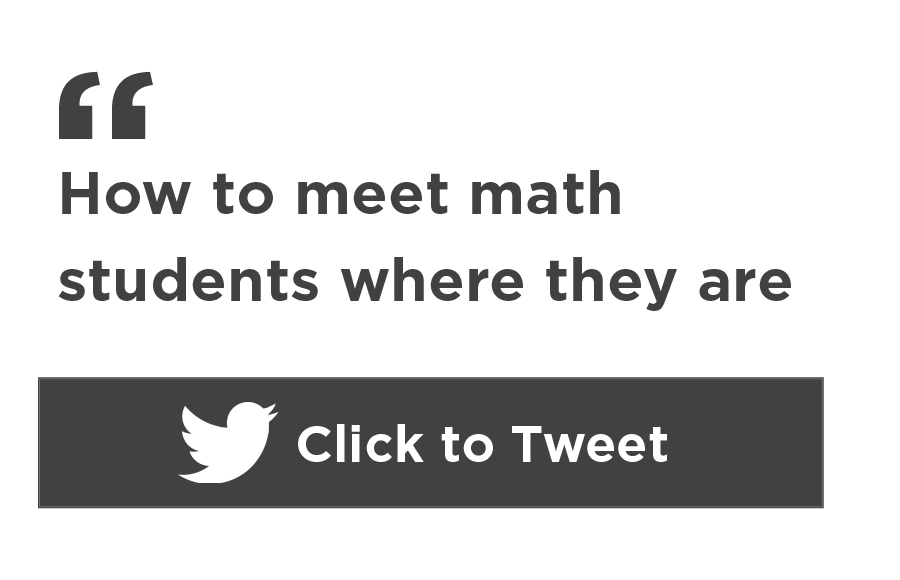Many of us are worried about how kids are doing in math right now. NWEA research released in December 2020 gives us reason to be concerned: students in grades 3–8 had a 5–10 percentile point drop in math MAP® Growth™ scores in the fall compared to fall 2019, and growth in math has been slower than in a typical year, too. There’s also deep worry for the students who weren’t accounted for in the data. These kids are more likely to be from vulnerable populations and weren’t able to test this school year for a myriad of reasons, including inequitable access to reliable internet during COVID-19 school closures.
I sat down with my colleague Fenesha Hubbard to learn more about what we can all do to support students in math. She began her career as a math teacher, and in her role as content designer on the Professional Learning team at NWEA she works on designing workshop materials that can help educators use MAP® Accelerator™, our assessment and differentiation tool developed in partnership with Khan Academy. She’s also deeply committed to equity work and making the classroom a rich learning environment for all children. Her answers have been edited for length and clarity.
In preparation for our time together, I did a little research. Did you know that according to MIT’s 2019 National Mathematics Survey, the gender gap in math degree attainment hasn’t changed over the years even though men and women are earning undergraduate degrees in roughly equal numbers? For example, in the 2013–14 school year, women earned 57% of bachelor’s degrees but only 43% of bachelor’s degrees in math. They earned 52% of doctoral degrees but only 29% of doctoral degrees in math. In short, it’s unusual for women to study math. Why did you pick math as your major?
“I fell into math sort of by default. And I’m glad that I did because once I started taking the higher-level math courses, like logic theory, I started to understand that, wow, math is pretty interesting.”
Tell me about your graduate school experience at the University of Illinois. You took part in the Middle Grades Math Program, a joint partnership between the University of Illinois at Chicago and Chicago Public Schools. How did that time prepare you for your role as a middle school math teacher and, eventually, instructional coach for math teachers?
“[I]t taught me a lot about the importance of making math come alive for students.”
You told me once that you taught on the south side of Chicago. What is one of your strongest memories of your time teaching there?
“[O]ne of my biggest memories is really helping students that looked like me to defy that stereotype that we have about who is capable of doing math and succeeding in math.”
Tell me about your role as an instructional coach for math teachers with Chicago Public Schools. What were some of your teachers’ biggest obstacles and how did you help them become confident math teachers?
“I learned that a lot of teachers have very unhealthy identities about math, and that’s transferred into their students.”
Funds of knowledge are a critical topic in equitable education. Can you tell me more about what they are and how they are especially useful in math instruction?
“Funds of knowledge becomes particularly important [in math] because that is the one subject where teachers are most reluctant to make real-world connections. [I]t’s imperative for teachers to really step back and see, what experiences are my students bringing to the classroom? How does this math content relate to the real world? And then how can I bridge those two together?”
Why is math in the classroom so often divorced from math in the real world?
“[Y]ou have a lot of teachers who teach the way that they’ve been taught. So then this becomes an issue of our teacher preparation programs. How are we equipping our teachers to teach math to young people?”
As you think back on your time with Chicago Public Schools and as you consider the challenges facing educators and students because of COVID-19, can you offer a few pieces of advice to math teachers?
“This is a critical time right now for us to rethink our instructional practices and the ways that we engage students. Most importantly, or more importantly than that, I think we also need to look at how we help our students develop their identities as learners. [O]ne way a teacher can do that is through helping students to tell their stories. Narratives are very powerful. [P]articularly in the math class, we can start by helping students tell their mathography, really looking at okay, when did I like math? What do I like about it? When are times that I didn’t like math? […] Just asking those simple questions helps to raise their level of self-awareness.”
What about advice to students?
“If you don’t understand something, that’s okay. You’re not here to know everything and to be perfect the first time around. Be okay with your mistakes.”
Do you have any advice for families worried about how to best support math skills at home?
“[D]on’t try to be the teacher, be who you’re there to be to that child, which is their support system.”
Finally, do you have any words for how administrators can support teachers, students, and families, especially when it comes to math confidence?
“[O]ne person cannot carry this by themselves. It has to be a practice within the school that we help to build our students’ identities because they’re gonna carry it with them year after year.”
Be sure to also check out Fenesha’s interview in the February 2021 issue of Show of Hands.









